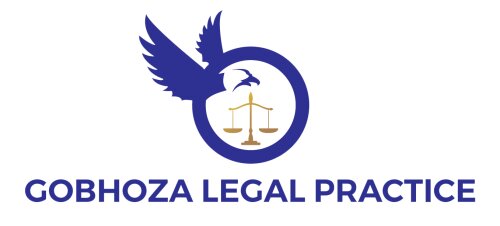Best Hiring & Firing Lawyers in Gaborone
Share your needs with us, get contacted by law firms.
Free. Takes 2 min.
List of the best lawyers in Gaborone, Botswana
About Hiring & Firing Law in Gaborone, Botswana
The legal framework governing hiring and firing in Gaborone, Botswana, is structured to balance the rights and obligations of both employers and employees. The Employment Act, which is the cornerstone of labor law in Botswana, outlines the procedures, requirements, and protections related to the employment lifecycle-from recruitment to termination. This guide aims to provide an overview of these regulations and offer advice on when legal assistance might be necessary.
Why You May Need a Lawyer
Legal expertise may be required in a variety of situations related to hiring and firing in Gaborone. Some common scenarios include:
- Disputes over wrongful termination: If an employee feels they have been dismissed unfairly.
- Contract issues: Clarifications on terms and conditions and enforcement of contracts.
- Compliance with labor laws: Ensuring adherence to the Employment Act during hiring and firing processes.
- Severance packages: Disputes or negotiations over severance pay and benefits.
- Discrimination claims: Addressing claims of discrimination in hiring or firing decisions.
Local Laws Overview
Understanding the key aspects of local laws is crucial for both employers and employees. Here are some fundamental points of the Employment Act that are particularly relevant to hiring and firing in Gaborone:
- Probation Periods: The Act specifies the permissible length of probation periods and the rights of employees during this time.
- Notice Periods: Requirements for notice periods before termination, which vary depending on the duration of employment.
- Grounds for Termination: Legitimate reasons for termination, including misconduct, incapacity, or operational requirements.
- Procedural Fairness: Ensuring fair processes are followed, including proper documentation and hearings if necessary.
- Severance Pay: Guidelines on the calculation and provision of severance pay for terminated employees.
- Anti-Discrimination Laws: Provisions to prevent discrimination based on race, gender, disability, and other protected characteristics.
Frequently Asked Questions
What constitutes wrongful termination in Botswana?
Wrongful termination may occur if an employer dismisses an employee without a just cause or without following due procedure as outlined in the Employment Act.
How long is the probationary period allowed by law?
The probationary period in Botswana typically ranges from three to six months, depending on the terms stipulated in the employment contract.
What is the minimum notice period for termination?
The notice period generally ranges from one week to three months, based on the length of employment and the terms of the employment contract.
Are employers required to provide severance pay?
Yes, severance pay is mandated by the Employment Act for employees who have been with the company for more than two years, with amounts varying based on the length of service.
Can an employee challenge a termination decision?
Employees have the right to challenge a termination they believe is unjust or procedurally unfair, typically through the labor courts or a mutually agreed upon arbitration process.
What protections exist against discrimination in hiring or firing?
The Employment Act includes provisions that protect employees from discrimination based on attributes such as race, sex, religion, and disability.
Are there any special requirements for terminating an employee due to redundancy?
Yes, employers must demonstrate that the termination is due to genuine operational requirements and follow a fair and transparent consultation process.
What should be included in an employment contract in Botswana?
An employment contract should typically include terms of employment, the nature of the work, remuneration, probation periods, and grounds for termination, among other relevant details.
Can an employer terminate an employee without notice?
Summary dismissal without notice is permissible in cases of gross misconduct. However, it must be substantiated with clear evidence.
What legal recourse do employees have if they believe they have been unfairly treated?
Employees can lodge a complaint with the District Labour Office, seek conciliation, or take their case to the labor courts for redress.
Additional Resources
Several resources and organizations can offer further assistance for legal advice related to hiring and firing in Gaborone:
- Ministry of Employment, Labour Productivity and Skills Development: The government body responsible for labor regulations.
- District Labour Offices: Provide assistance with disputes and queries regarding employment laws.
- Botswana Federation of Trade Unions (BFTU): A resource for employees seeking advice on labor issues.
- Law Society of Botswana: Can help in locating qualified labor law attorneys.
- Botswana Chamber of Commerce and Industry: Offers support for employers in understanding compliance issues.
Next Steps
If you need legal assistance concerning hiring and firing in Gaborone, Botswana, consider taking the following steps:
- Identify the Issue: Clearly define the problem or question you are facing related to hiring or firing.
- Gather Documentation: Collect all relevant documents, such as employment contracts, termination letters, and any correspondence related to the matter.
- Seek Professional Advice: Contact a lawyer specializing in labor law for an initial consultation to understand your legal standing and options.
- Utilize Government Resources: Reach out to the Ministry of Employment or District Labour Offices for guidance and support.
- Resolve Disputes Amicably: Whenever possible, aim to resolve disputes through mediation or arbitration to avoid lengthy legal battles.
Lawzana helps you find the best lawyers and law firms in Gaborone through a curated and pre-screened list of qualified legal professionals. Our platform offers rankings and detailed profiles of attorneys and law firms, allowing you to compare based on practice areas, including Hiring & Firing, experience, and client feedback.
Each profile includes a description of the firm's areas of practice, client reviews, team members and partners, year of establishment, spoken languages, office locations, contact information, social media presence, and any published articles or resources. Most firms on our platform speak English and are experienced in both local and international legal matters.
Get a quote from top-rated law firms in Gaborone, Botswana — quickly, securely, and without unnecessary hassle.
Disclaimer:
The information provided on this page is for general informational purposes only and does not constitute legal advice. While we strive to ensure the accuracy and relevance of the content, legal information may change over time, and interpretations of the law can vary. You should always consult with a qualified legal professional for advice specific to your situation.
We disclaim all liability for actions taken or not taken based on the content of this page. If you believe any information is incorrect or outdated, please contact us, and we will review and update it where appropriate.

















